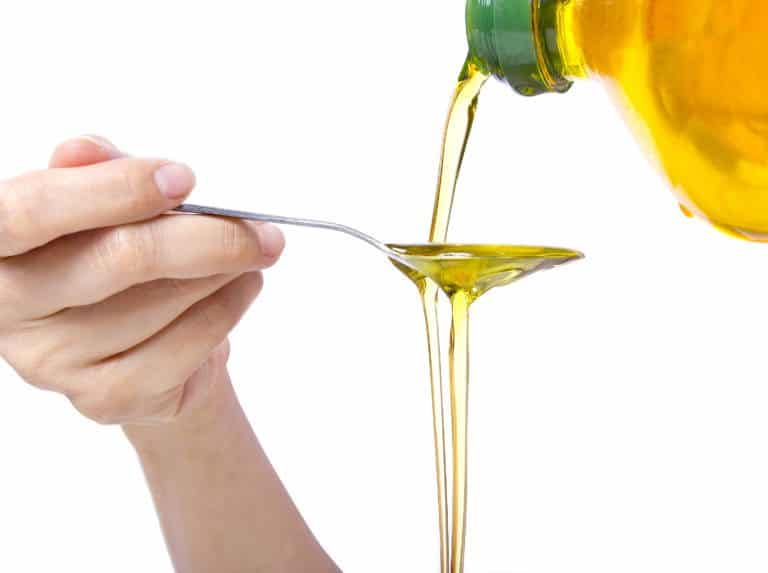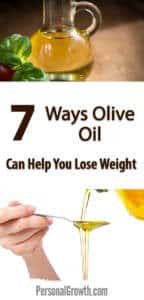

Olive oil has had a turbulent relationship with the dieting world. In the days of the low-fat diet, it was painted as an artery clogger and waistline killer; as dietitians differentiated more and more between healthy and unhealthy fats, it got a general reputation as “fattening, but still really good for you.”
However, as research about olive oil continues to come in, the picture is notably less clear than it seemed to be at first. Olive oil may actually help with weight loss.
By making healthy foods such as vegetables more appetizing and filling, olive oil encourages you to fill up on vitamins and healthy fats rather than saturated fats and cholesterol, and because it’s delicious, it won’t make you feel like you’re dieting.
1. It’s A Heart-Healthy Fat
Olive oil is a spectacular source of monounsaturated fat. Monounsaturated and polyunsaturated fats are loaded with high-density lipoprotein (HDL), or “good” cholesterol, while the more common saturated and trans fats are full of low-density (LDL), or “bad” cholesterol. LDL is the cholesterol that clogs arteries with plaque, makes them less flexible, and can ultimately form a clot that contributes to heart attack or stroke.
HDL actually works as a scavenger that breaks down LDL and carries it to your liver to be broken down and passed as waste. Olive oil and other healthy oils are still high in calories, so you shouldn’t cook with gallons of the stuff and expect to lose weight. However, if you use olive oil in place of butter, salad dressing, or other saturated fat sources, you’ll be doing your heart a favor.
Olive oil is a spectacular source of monounsaturated fat. Monounsaturated and polyunsaturated fats are loaded with HDL, or “good” cholesterol, while the more common saturated and trans fats are full of LDL, or “bad” cholesterol. LDL is the cholesterol that clogs arteries with plaque, makes them less flexible, and can ultimately form a clot that contributes to heart attack or stroke.
HDL actually works as a scavenger that breaks down LDL and carries it to your liver to be broken down and passed as waste. Olive oil and other healthy oils are still high in calories, so you shouldn’t cook with gallons of the stuff and expect to lose weight. However, if you use olive oil in place of butter, salad dressing, or other saturated fat sources, you’ll be doing your heart a favor.
2. It Makes Vegetables Taste Better
Because olive oil has a rich, distinctive taste, you can use it to make vegetables taste better. This will encourage you to eat more vegetables and contribute to weight loss.
Many vegetables, such as broccoli, green beans, and squash, can be drizzled in olive oil and roasted with garlic or other herbs for about twenty minutes, giving them a marvelous flavor and decadently crispy texture without adding as many calories as salad dressing, butter, or cheese sauce.
You can also try frying or sauteing the vegetables in olive oil or even eating them raw with an olive oil dressing. However you decide to eat the vegetables, olive oil will help them to go down easier and will make it easier to reach for a second helping of zucchini instead of a second helping of steak.
3. It Fills You Up Better Than Other Fats
Even if you can’t make yourself eat that second helping of vegetables, olive oil can help to fill you up enough that you won’t reach for seconds on something unhealthy. In a 2013 study by the Technical University of Munich, participants ate yogurt that had been mixed with one of four different kinds of fat: olive oil, butterfat, lard, or rapeseed oil.
The participants who ate the olive oil yogurt reported more feelings of fullness and had higher blood levels of the satiety hormone, serotonin than the other groups, suggesting that olive oil fills you up more efficiently than other forms of fat. What’s more, none of the participants in the olive oil group gained weight during the course of the study.
In fact, the mere smell of olive oil can make you feel fuller. In a follow-up study, participants simply ate yogurt that smelled like olive oil rather than having yogurt with olive oil mixed in, and they reported the same results (ibid).
The smell of the olive oil helped to regulate the participants’ blood sugar levels, making them feel fuller. You may find that simply taking a whiff of olive oil before a meal has a positive effect on your waistline.
4. It Makes Salads Healthier . . .
You may have heard that eating a salad with fat-free dressing will actually make the salad less healthy; fats help your body to absorb the nutrients in the salad so you can fully process those nutrients. This is completely true.
Your body needs fat in order to properly process carotenoids, antioxidants like beta-carotene, lycopene, and lutein that help you fight off age-related eye disease and may help protect you from cardiovascular disease and cancer.
What you may not have heard, however, is that monounsaturated fat is hands down the best kind of fat for helping your body to absorb nutrients. In a 2012 study, people ate salads with three to 20 grams of saturated, monounsaturated, or polyunsaturated fat-based dressings, and scientists then tested their blood for carotenoid levels to see how much they absorbed.
The monounsaturated fat-based dressing was the only one that let their blood absorb the maximum amount of nutrients with just three grams, suggesting that you may need to float your salad in a river of dressing to get its full nutritional benefit, but that you only need to sprinkle it with a little bit of olive oil. Olive oil isn’t just a healthier fat than butter; it also makes a little bit of fat go a longer way.
5. . . . And Other Vegetables Too
The health benefits of olive oil and vegetables don’t just apply to salads. A 2016 study showed that frying vegetables in extra-virgin olive oil is actually healthier than boiling them. Frying vegetables in olive oil boosts their levels of antioxidants, which could make them more effective at fighting cancer, diabetes, and other diseases.
 Importantly, this research only applies to olive oil, not vegetable oils like corn and sunflower oil, which can actually increase your risk of cancer if you cook with them too often.
Importantly, this research only applies to olive oil, not vegetable oils like corn and sunflower oil, which can actually increase your risk of cancer if you cook with them too often.
6. It Has Its Own Health Benefits
Olive oil can help you lose weight by making you full faster and boosting the nutritional content of vegetables, but it isn’t a nutritional slouch itself. Olive oil is loaded with antioxidants called polyphenols, which are tremendously healthy for your heart and can reduce your risk of heart attack or stroke. Another component of olive oil, oleuropein, may help age-related bone loss by increasing your body’s natural production of the cells that form your bones.
7. Drinking It Straight?
One suggested way to lose weight with olive oil is the Shangri La diet, which recommends regularly swallowing a few tablespoons of olive oil or glasses of sugar water throughout the day to trick your brain’s satiety centers into believing that you’re full.
However, the jury is still out on the science behind the Shangri La diet, and it doesn’t encourage you to take advantage of the full healthful power of olive oil by mixing it with vegetables and other foods. Rather than drinking olive oil straight to make yourself feel full, take that tablespoon and drizzle it on some spinach. It may not be attached to any quick weight loss promises, but it will eventually allow you to lose weight – and to make your overall lifestyle healthier, too.

